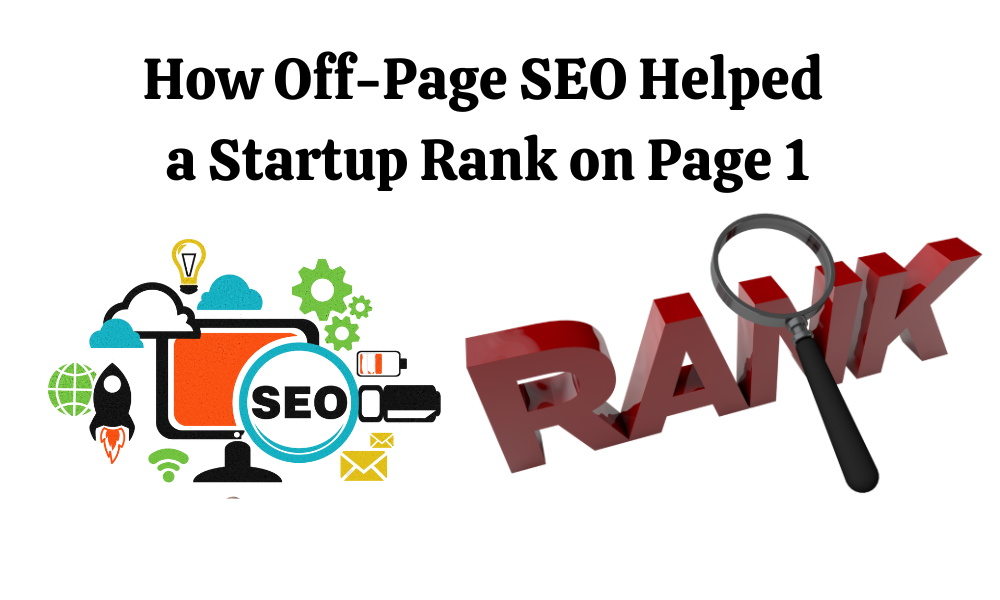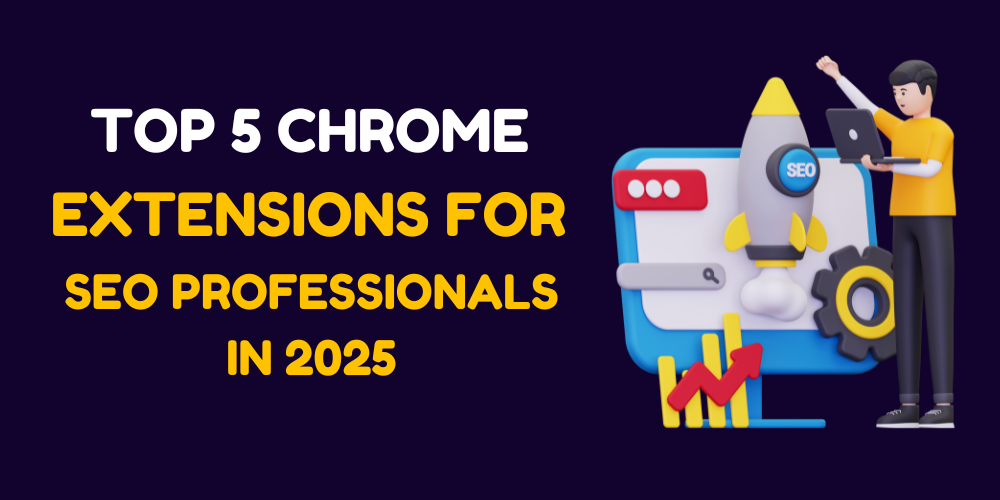Case Study: How Off-Page SEO Helped a Startup Rank on Page 1
For startups, ranking on the first page of Google can feel like an impossible dream. With limited resources and fierce competition, it’s easy to get discouraged. However, with the right off-page SEO strategies, even a startup can achieve remarkable results.
In this case study, I’ll share how we helped a startup rank on page 1 of Google using off-page SEO techniques. You’ll learn actionable strategies to boost your website’s rankings and online visibility, even with a limited budget.
The Challenge: A Startup with Big Dreams
Our client, a tech startup, had recently launched a SaaS product aimed at small businesses. Despite having a great product and a well-designed website, they were struggling to attract organic traffic. Their primary challenges included:
- Low Domain Authority (DA): With a DA of 15, they were far behind established competitors.
- Limited Backlinks: They had fewer than 50 backlinks, mostly from low-authority websites.
- Low Brand Awareness: As a new player in the market, they had little recognition or trust.
Their goal was to rank on page 1 for their target keyword, “small business productivity tools,” within 6 months.
Our Off-Page SEO Strategy
To help the startup achieve its goal, we developed a comprehensive off-page SEO strategy focused on building high-quality backlinks, increasing brand awareness, and establishing authority. Here’s how we did it:
1. Conducted a Competitor Analysis
We started by analyzing the backlink profiles of their top competitors. Using tools like Ahrefs and SEMrush, we identified:
- Websites linking to their competitors.
- Content types that attracted the most backlinks.
- Gaps in their own backlink profile.
This analysis helped us identify opportunities for earning high-quality backlinks.
2. Created Link-Worthy Content
Content is the foundation of any successful off-page SEO strategy. We worked with the startup to create content that:
- Addressed their target audience’s pain points.
- Was comprehensive, well-researched, and actionable.
- Included a mix of formats, such as blog posts, infographics, and videos.
For example, we published a detailed guide titled “10 Productivity Tools Every Small Business Needs in 2025,” which became a cornerstone of their content strategy.
3. Built High-Quality Backlinks
Backlinks are one of the most significant factors influencing search rankings. We focused on earning backlinks from authoritative, relevant websites through:
- Guest Blogging: We contributed articles to reputable industry blogs, including a backlink to the startup’s website in the author bio.
- Outreach Campaigns: We reached out to websites that had linked to similar content and pitched our resources as a better alternative.
- HARO (Help a Reporter Out): We responded to journalist queries and earned backlinks from high-authority news websites.
4. Leveraged Social Media and Online Communities
Social media played a crucial role in our strategy. We used platforms like LinkedIn, Twitter, and Facebook to:
- Share the startup’s content and attract organic traffic.
- Engage with industry influencers and build relationships.
- Participate in online communities and forums, providing value and linking to their content when relevant.
5. Optimized for Local SEO
As a startup targeting small businesses, we knew that optimizing for local search could help them attract backlinks and improve their rankings. We:
- Claimed and optimized their Google My Business listing.
- Submitted their website to niche-specific local directories.
- Encouraged satisfied customers to leave reviews on Google and other platforms.
6. Monitored and Disavowed Toxic Backlinks
Not all backlinks are beneficial. We regularly monitored their backlink profile using tools like Ahrefs and Moz to identify toxic or spammy links. For links we couldn’t remove, we used Google’s Disavow Tool to tell Google to ignore them.
7. Tracked Progress and Adjusted Strategies
We monitored their progress using tools like Google Analytics, Moz, and Ahrefs. By tracking metrics such as organic traffic, backlinks, and keyword rankings, we were able to identify what was working and adjust our strategies accordingly.
Results: Ranking on Page 1 in 6 Months
After 6 months of consistent effort, the startup achieved the following results:
- Keyword Rankings: Ranked on page 1 for their target keyword, “small business productivity tools.”
- Organic Traffic: Increased by 120%.
- Backlinks: Earned over 150 high-quality backlinks.
- Domain Authority: Increased from 15 to 35.
These improvements not only boosted their search rankings but also enhanced their overall online visibility and brand awareness.
Key Takeaways from the Case Study
- Quality Over Quantity: A few high-quality backlinks are more valuable than hundreds of low-quality ones.
- Content is King: Invest in creating content that addresses your audience’s needs and attracts backlinks.
- Leverage Social Media: Use social media to amplify your content’s reach and build relationships with influencers.
- Monitor and Adjust: Regularly track your progress and adjust your strategies based on performance.
- Be Patient and Consistent: Off-page SEO is a long-term strategy that requires ongoing effort.
Actionable Strategies to Boost Your Off-Page SEO
- Conduct a Competitor Analysis: Identify opportunities by analyzing your competitors’ backlink profiles.
- Create Link-Worthy Content: Focus on creating content that others want to link to.
- Build High-Quality Backlinks: Use guest blogging, outreach campaigns, and HARO to earn backlinks.
- Engage on Social Media: Share your content and build relationships with influencers.
- Optimize for Local SEO: Claim your Google My Business listing and submit to niche directories.
- Monitor Your Backlink Profile: Regularly audit your backlinks and disavow toxic ones.
Ranking on page 1 of Google is achievable for startups with the right off-page SEO strategies. By focusing on high-quality content, building authoritative backlinks, and engaging with your audience, you can boost your website’s rankings and online visibility.
Remember, off-page SEO is a long-term process that requires patience and consistency. Start implementing these strategies today, and you’ll be well on your way to achieving your SEO goals.




